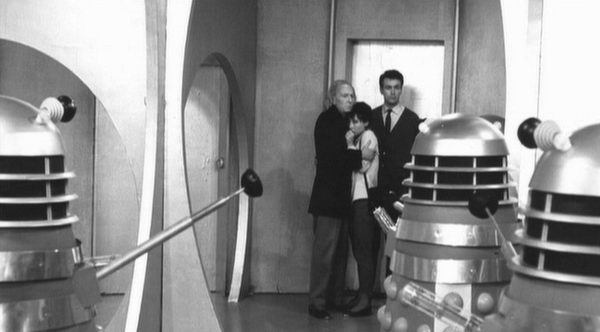
Read certain news outlets and it might sound as though the Doctor is in trouble.
“Are we bored of Doctor Who?” asks London’s Metro, noting that the show’s ratings on the night of transmission in the UK fell from 4.6 million to 3.8 million between episodes one and three.
“Doctor Who Season 10 premiere down considerably vs. Season 9,” reports TV By the Numbers, noting that the season’s debut on BBC America drew 921,000 viewers, compared with two million at the start of the previous season.
If almost a million Brits, and more than a million viewers Stateside, did desert the show, then they missed out. So far, the new season has introduced the Doctor’s most appealing companion for years (Bill, played by Pearl Mackie) and given its star, Peter Capaldi, some arresting scripts, full of ideas and excitement, without the overcomplexity that may have put some viewers off in recent seasons.
But news reports like these overlook the huge changes that have taken place in TV viewing habits in recent times. And they ignore the way consumption of genre drama in particular has changed as SF and fantasy have come to dominate the entertainment world.
For one thing, we should note that the figures quoted above are for “overnight” ratings – the number of people who watched the show as it went out, or who played back a recording later that day. Few news sites are interested in waiting for the “consolidated” ratings, which count the number of people who catch up with a show within a week of its broadcast. The consolidated rating in the UK for that first Who episode, The Pilot, takes the 4.6 million figure to 6.7 million.

If the British press judge Doctor Who by outmoded standards, that might have something to do with the fact that so much nostalgia is attached to the series. This is a show that, in its “classic” incarnation, could pull in 14 million viewers in the 1960s (when the UK had only two TV channels) and sometimes more than 12 million in the 1970s. In the mid-1970s, Doctor Who was part of a golden era of Saturday television in the UK. A family that gathered around the TV at around the time of the soccer results in the afternoon could stay in their chairs through a perfectly-balanced line-up which included comedy, a game show, quality drama and late-evening chat with golden age movie stars.
It isn’t 1975 any more. But neither is it 2005, when the revived Doctor Who was launched into a world where VHS tapes were still the main method for watching a series outside its scheduled slot. Since then, we’ve not only had DVDRs and Tivo boxes, but, crucially, online streaming.
Ira Nayman recently argued on this site that the Doctor Who spin-off Class should be given a fair chance after rumours that it could be axed. It, too, has seen disappointing ratings – but then, in the UK, Class is a show without a channel. Its home is BBC3, a station that is no longer on the air but exists as a brand for people to access online at their convenience. It makes no sense to judge a series as though these things haven’t happened.
Just as importantly, we should note that the genre landscape is very different now. It sometimes seems as though SF and fantasy rule the universe, with slates of movie releases extending years into the future, and a host of TV series heavily promoted and discussed. But with so much genre entertainment around, via a multiplicity of competing platforms, fandom is more fragmented. Once, genre television was limited to a handful of titles dominated by Star Trek. Now, it’s possible to be into Game of Thrones but to never have seen Stranger Things, or to like Agents of S.H.I.E.L.D. and not be able to access Westworld. This phenomenon was discussed by Amazing’s Steve Davidson in his excellent post ‘It’s not that I don’t get it, I can’t get it’.
Genre fans may seem to be well catered for at the moment, but we’re not a single mass audience; we’ve become a coalition of minority interests. Doctor Who, like shows which don’t have its 54-year history, should be given some leeway to find new audiences over time, not expected to deliver it all at once on a Saturday night as though we had travelled back in time to another era of entertainment.









